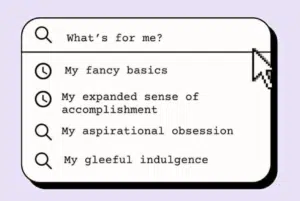Debunking “GOOD SKINCARE PRODUCTS” out there and the malicious marketing behind.

The Reddit group Skincare Addiction now has 2 million subscribers, up from half a million in 2018. The model and social media star Hailey Bieber, a self-described skincare product hoarder known for her flawless, glowing skin, has inspired 73m TikTok views of the hashtag #haileybieberskin. Figures from Google Trends show sharp increases in searches for Botox, injectable fillers and skincare products in the past couple of years. Search popularity for all three doubled in the UK during the first two years of the coronavirus pandemic, and has remained high since 2022. In April this year, searches for Botox were 13% higher than in April 2023, while searches for good skincare products were up 30%. The hashtag #skincareroutine has garnered a staggering 55bn views on TikTok. This severe yearning for beauty has no end and practically speaking since antiquity (even when the internet didnt facilitate), it stays growing. The Ancient Egyptians knew all about skincare. Scrolls dating back 3,500 years describe elaborate routines to keep the face soft and smooth, the body gently perfumed. – there were treatments on hand for most common ailments: wrinkles and moles, eczema and itches, boils, stings and bites. This makes the very fact evident that self care is an indispensable exercise but exploiting and wanting women (majorly) to feel insecure about their insecurities and grabbing more money as a result makes it outstandingly egregious – The beauty brands or even the brands selling makeup, obligingly manifest these insecurities while giving themselves a pat on the back for empowering women to feel better and earning luxury markups (ofcourse) on their skincare products or makeup drops.
An advert which contains skin brightening creams continues to wax lyrical beauty of a woman with an erroneous tagline “Love your body”. Seems problematic? For sure! Because love your body…. so long as you’re white? The ominous reality affiliated with these skin brightening creams is far more dreadful. Zero mercury working group tested 271 skin brightening creams from 15 countries and found mercury in those skin brightening creams sold online. Is’nt it really concerning that these online manufacturers continue to sell and flaunt and profit from these illegal skin brightening creams that are doing significant damage to customers in the pursuit of coveted beauty. Regardless of the damage and detriment it causes – using mercury in their skin brightening creams because it blocks production of melanin which gives color to skin, and it can be used to remove spots, freckles, blemishes and wrinkles. Some analysts expect skin brightening creams sales to reach nearly $12bn globally by 2026, ZMWG said. Mercury poisoning can render significant injury, including rashes, kidney disease and nervous system damage. In 2023, a California woman who used mercury- contaminated skin brightening creams slipped into coma. Most of the contaminated skin brightening creams were not made by large American or European brands, but were found in Pakistani, Mexican, Chinese and Thai brands that are sometimes popular in those regions. Thereby, we present our strong conviction that beauty industry in Pakistan stands starkly before us and as we’ve plunged recently into the market, we had this motto in mind: even if it is difficult for us to survive, we are not going to make any faux claims nor we’d sell any of the insecurities and that’s what make us stand apart. Being a small business even, we had THE TRANSPARENT ORIENTATION and we honestly expect appreciation from our potential customer base where big beauty corporations are peddling their grim marketing tactics – Pantene gets on the feminism bandwagon with a commercial pertaining to double standards in philippines and let us not forget same Pantene’s ad in Brazil that used a tremendously large breasted woman to hawk shampoo. (Tagline: “Make sure your hair is the second thing he looks at”).
Rather having the commercials that lift women up, their marketing focuses on which insecurity we can proffer in the bleakest possible manner to gauge and lure and that’s not how, being a very small business, we can operate. We condemn beauty brands who are materially benefitting from the women’s supposed shortcomings and by the way we are not remotely sorry for this.
